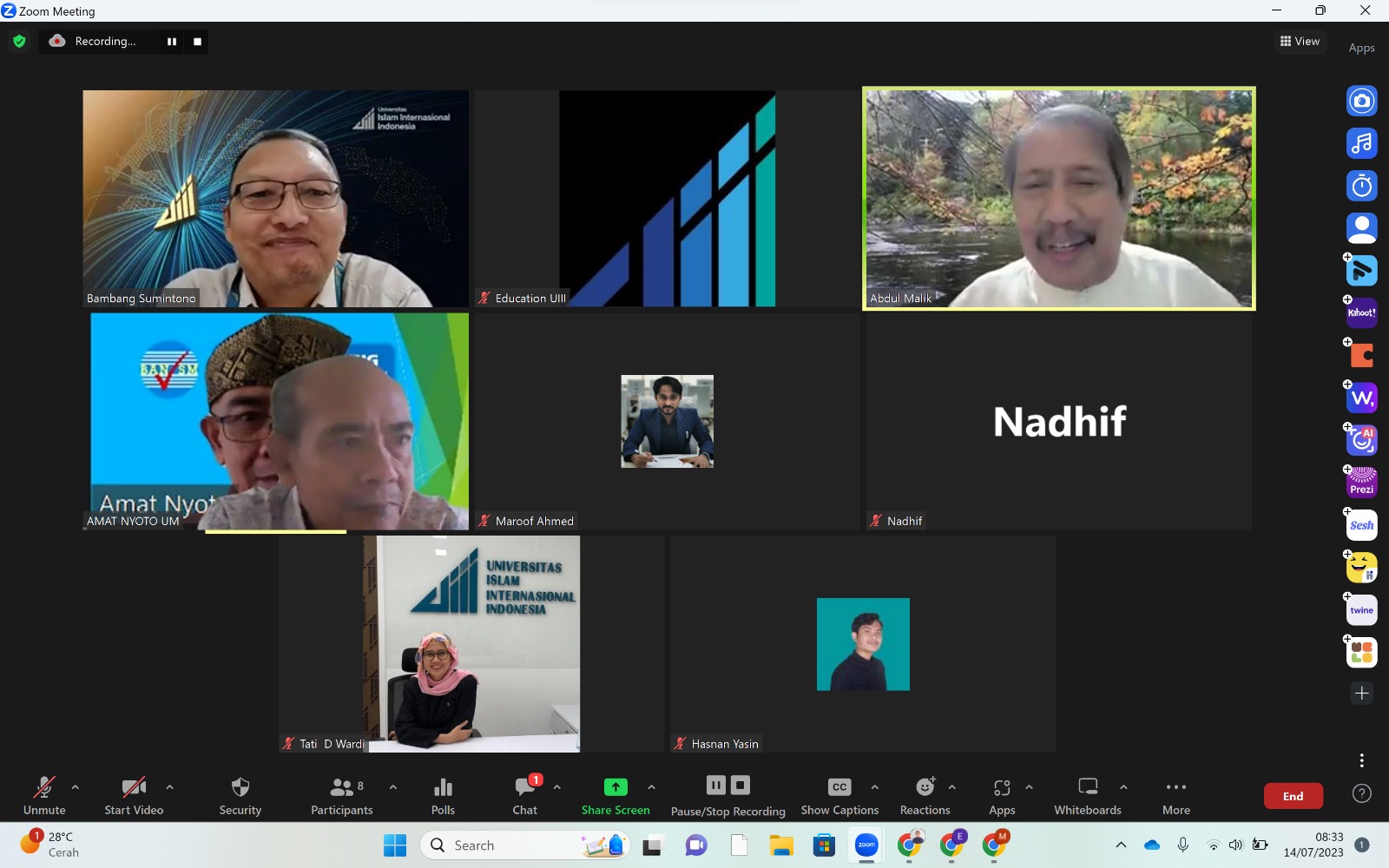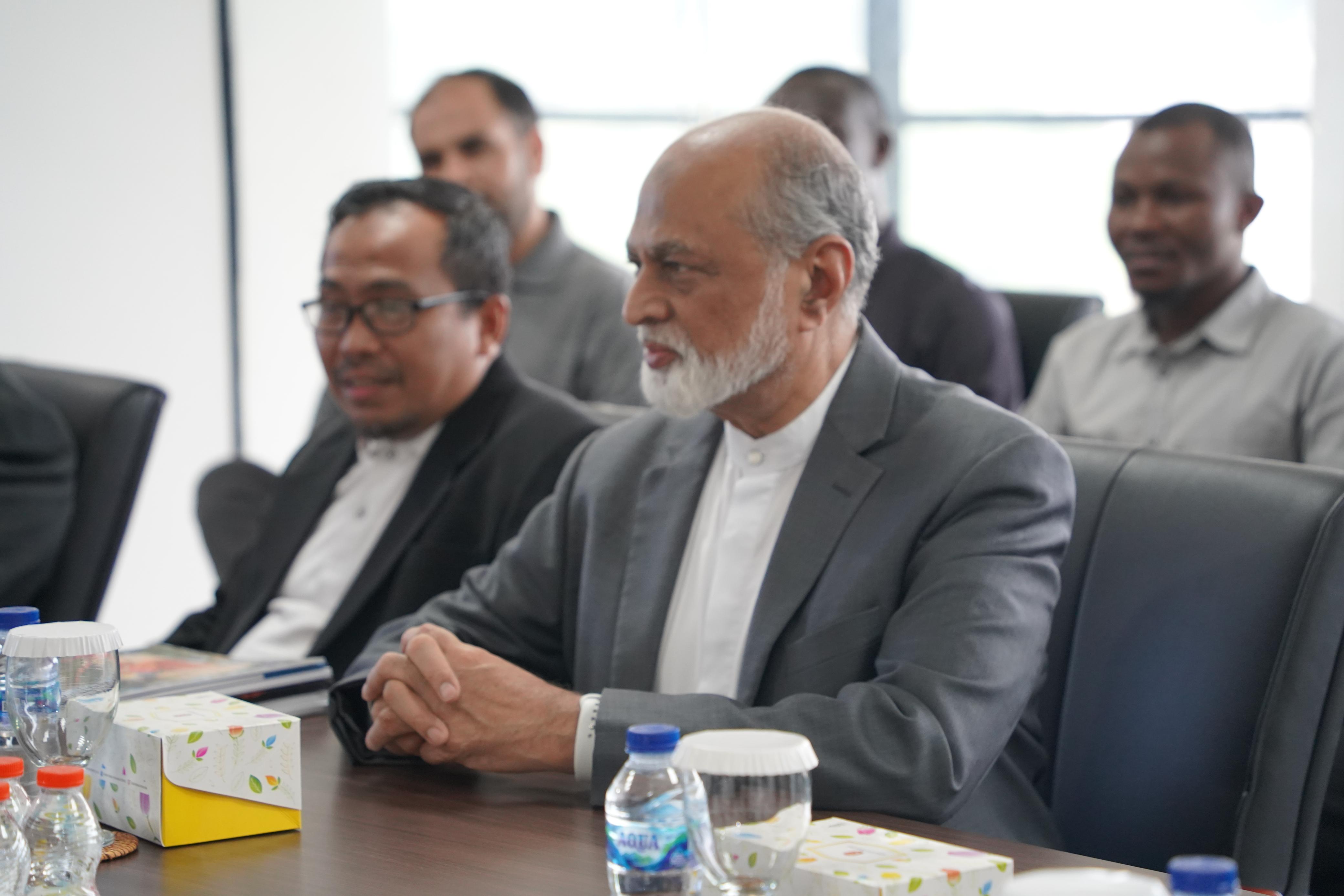Advancing TVET in Indonesia: Insights from Dr. Abdul Malik's Lecture at FoE
August 05, 2023Contributor: Maroof Ahmed | Editor: Dadi Darmadi

On July 14, 2023, the Faculty of Education (FoE) at Universitas Islam Internasional Indonesia (UIII) had the privilege of hosting a distinguished guest lecturer, Dr. Abdul Malik, from the National Accreditation Agency for Schools/Madrasahs (Badan Akreditasi Nasional Sekolah/Madrasah). The online lecture focused on the Technical and Vocational Education and Training (TVET) Policy in Indonesia.
Dr. Malik commenced the lecture with a comprehensive overview of TVET within the National Education System, emphasizing its significance in Indonesia's education landscape. He then delved into the National Vocational Education and Training Portfolio, providing an outline of the available vocational education and training programs in the country.
Throughout his lecture, Dr. Malik discussed the institutional framework supporting vocational education and training in Indonesia. This framework involves various ministries, professional associations, and independent accreditation boards, all working collaboratively to ensure the quality and relevance of TVET.
Addressing the challenges faced by TVET, Dr. Malik highlighted issues such as the lack of demand-side perspective, the variable basis for program design and curricula, and difficulties in competency assessment and certification. Additionally, he brought attention to the inadequate availability and quality of teachers and instructors with industry exposure, as well as the lack of proper infrastructure and equipment for practical skills training in schools.
Despite existing regulations, Dr. Malik noted that the unemployment rate among Senior Secondary Vocational School (SMK) and Diploma graduates was 8.49% and 6.76%, respectively, in 2020, indicating a need for further improvements in the system.
To address these challenges, Dr. Malik presented some recent reform initiatives that have been undertaken, including the National TVET Revitalization Program. Key elements of this reform involve the development of a comprehensive labor market information system, the strengthened involvement of the private sector and industry in TVET policy, planning, and implementation, and improvements in vocational education at both secondary and tertiary levels.
In conclusion, Dr. Malik emphasized the importance of demand-oriented, competency-based vocational education and training to align educational programs with industry needs. This approach aims to produce a more skilled and competent workforce, ultimately enhancing the employability of graduates.
Dr. Malik's lecture offered valuable insights into the current state of TVET in Indonesia and the ongoing policy reforms aimed at its improvement. It served as an enlightening session, highlighting the pivotal role of vocational education and training in equipping the Indonesian workforce with the necessary skills and competencies to meet industry demands.
- UIII Extends Application Deadline for 2025 International Admissions
- What Does Eid al-Fitr Mean for the UIII Academic Community?
- UIII PhD Scholar Ararat Kostanian Delivers Lecture at Armenia's Yerevan State University
- Swedish Ambassador to Indonesia Applauds UIII’s Vision, Explores Future Collaboration
- Depok Mayor Supports UIII as the Green Lung of Depok and Beyond
- Depok Mayor Pledges to Build Performance Hall at UIII
- New Parking Facility Launched, Part of UIII-Sentra Medika Hospital Partnership
- Yogyakarta’s UII Won 1st FisFastFest’s Clash of Campuses
- Vice Minister of Religious Affairs Praises UIII as a Global Hub for Islamic Education
- Hurray!! UIII Wins Football Championship


